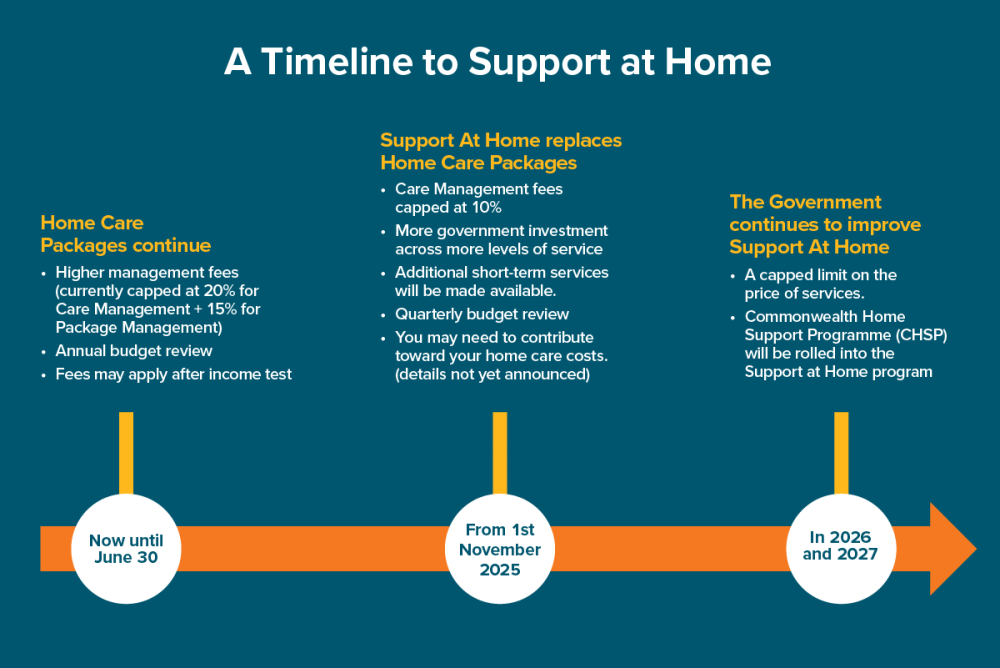Drafting an effective support at home plan: A guide for individuals and families
Drafting an effective support at home plan: A guide for individuals and families
Blog Article
Everything About Home Treatment Providers for People With Disabilities: NDIS Registered Assistance
Home care services under the NDIS play an essential role in sustaining individuals with impairments. These solutions are designed to enhance daily living via tailored help, varying from individual like mobility assistance. Recognizing how to browse these options can be intricate. This summary discovers the various elements of NDIS home treatment, from available services to the option of suppliers, highlighting essential considerations for those looking for support. The trip toward empowered care begins here.
Understanding the NDIS and Its Purpose
The National Handicap Insurance System (NDIS) works as a transformative structure created to give support and services for individuals with impairments. Developed to improve the lifestyle and guarantee equitable accessibility to important sources, the NDIS equips individuals by supplying individualized strategies customized to their distinct needs. It aims to foster freedom, enabling people to pursue their individual goals and aspirations.Through a structured technique, the NDIS allocates financing for numerous assistances, including education and learning, work assistance, and community involvement. This all-inclusive system not just concentrates on prompt treatment however additionally highlights long-lasting developmental end results. By advertising option and control, the NDIS urges individuals to choose their recommended company, ensuring that treatment lines up with their preferences and worths. Eventually, the NDIS represents a considerable commitment to boosting the lives of people with handicaps, cultivating inclusivity, and constructing a more helpful culture.
Kinds Of Home Care Solutions Available
Various types of home care services satisfy people with impairments, mostly concentrating on personal care assistance and break care alternatives. Personal treatment support offers crucial support with day-to-day activities, while reprieve treatment offers momentary alleviation for primary caregivers. Understanding these services is crucial for making sure the health of both people with disabilities and their households.
Personal Care Help
While steering day-to-day live can offer challenges for people with handicaps, individual care support offers vital support tailored to their one-of-a-kind demands. This kind of home treatment solution incorporates a variety of tasks designed to promote self-reliance and improve lifestyle. Individual care assistants aid with day-to-day jobs such as bathing, clothing, brushing, and toileting, making certain people keep personal health and comfort. They might additionally assist with dish prep work, drug management, and flexibility support. By providing personalized treatment, these specialists empower individuals to involve more totally in their day-to-day routines and social tasks. On the whole, personal treatment help plays a substantial function in cultivating self-respect and autonomy for those with impairments, allowing them to thrive in their home atmosphere.

Reprieve Care Options
Reprieve treatment serves as a vital source for family members and caregivers of individuals with specials needs, offering momentary remedy for the demands of everyday caregiving. This kind of service can take various forms, including in-home break treatment, where experienced experts go to the home to assist with treatment tasks. Family members may decide for facility-based reprieve treatment, where people receive care in a specific environment, allowing caregivers to take a break. Additionally, some companies use emergency break services for unforeseen circumstances. These alternatives not only help alleviate caregiver anxiety but also promote the health of people with disabilities by using them new experiences and social communication. On the whole, break care plays an important function in supporting both caretakers and those they look after.

Exactly How to Gain Access To NDIS Home Care Solutions
Accessing NDIS home care solutions entails recognizing the eligibility criteria established forth by the National Handicap Insurance Policy Scheme. People should navigate a structured application process to safeguard the essential support tailored to their needs. This area will clarify both the qualification needs and the actions associated with obtaining solutions.
Eligibility Criteria Discussed
To qualify for NDIS home treatment services, individuals need to fulfill certain qualification requirements that analyze their circumstances and requirements. First, candidates need to be aged in between 7 and 65 years and have a permanent and significant impairment that affects their ability to perform daily tasks. In addition, they must be an Australian citizen, a permanent citizen, or hold a Protected Special Category Visa. The NDIS needs evidence of the disability, usually with clinical evaluations or reports. Individuals should demonstrate that they need support to participate in social and economic life. These requirements assure that solutions are directed towards those that truly need aid, advertising freedom and enhanced quality of life for individuals with disabilities.
Application Refine Steps
Can I Pick My Own Support Workers Via NDIS?
The private inquired whether they can select their very own support employees under the NDIS structure. Typically, participants have the versatility to choose assistance workers, promoting customized care that straightens with their details requirements and preferences.
What Takes place if My Demands Modification After Obtaining Support?
They need to interact these adjustments to their service copyright if a person's needs adjustment after getting support. Changes can be made to the care plan, making sure that the assistance remains pertinent and efficient for their scenarios.

Exist Limits on Exactly How Several Hours of Treatment I Can Receive?
The specific asked about possible limitations on the number of treatment hours received. Typically, such limitations might exist based on particular plans or moneying plans, highlighting the value of assessing guidelines and agreements frequently.
Can I Use NDIS Financing for Home Alterations?
The concern of utilizing financing for home adjustments arises regularly. Generally, individuals might use NDIS funding for essential modifications to their homes, ensuring access and security, section upon meeting particular qualification criteria and guidelines.
Just how Do I Deal with Grievances Regarding My Home Treatment Services?
To attend to complaints concerning home care solutions, people should first record their concerns. Then, they can interact straight with their provider, seeking resolution, or escalate the concern to pertinent oversight bodies if essential. Home care services under the NDIS play an essential function in supporting individuals with disabilities. Different kinds of home treatment solutions provide to individuals with handicaps, mostly focusing on individual care aid and respite care choices. home care providers. Individual care aid provides vital support with daily tasks, while reprieve treatment uses momentary alleviation for key caregivers. Households might opt for facility-based reprieve care, where people obtain care in a specialized atmosphere, permitting caregivers to take a break. How can households effectively manage the financial aspects of home care solutions for individuals with disabilities?
Report this page